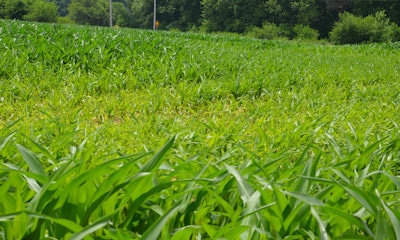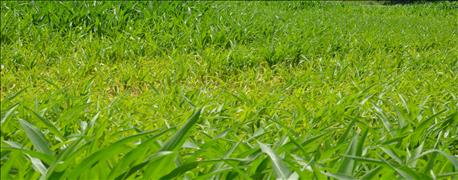
There is likely a reason many of you read the series by Greg Halich recently. The University of Kentucky Extension ag economist posed a question around what he calls the ‘Blinking Game.’ How long can farmers continue to pay cash rent just to hold on to land, even if they are penciling out losses. And if no one blinks, what shape will farmers even with good capital positions be in three years from now if markets don’t change.
Halich says it’s not a time of great optimism either.

HOT INPUT: One thing farmers don’t seem to be backing off of much is installing tile. Memories of the wet 2015 season may be pushing this one to the top of the long-term investment list.
Here are 10 questions we’ve heard real farmers and crop consultants ask over the past couple weeks as reality sets in. Some are directly related to economics. Others are crop production related, with an eye toward trimming budgets.
The interesting thing about this list is that there are no reactions, but no true answers. Each person is going to have to decide how to answer these questions for him or herself.
1. Would landowners be open to accepting less cash rent if you lay out the books and show them the numbers?
Consensus: It’s a case-by-case basis. Many landowners count on this rent as part of their income.
2. Would landowners consider flexible cash rent?
Consensus: Some consider it, even propose it, but their idea of a base rent may still be $250 per acre for decent land.
3. Why wouldn’t a landowner understand you can’t pay as much today?
Consensus: Some might understand, but they are on fixed income and need the money. Others don’t feel like tenants shared with them in good times.
4. Is property tax really a factor for landowners?
Consensus: It is, because they see them going up. Proportionately, they’re not a big chunk compared to the rent most are getting, but even a small increase in property taxes means less money in their pocket.
5. Are some farmers able to still put out a crop without a operating loan?
Consensus: Some are, but not as many as a year ago. One farmer says he took out a loan for the first time in a long time, and he doesn’t sleep as well at night.
6. Are some going to forego crop insurance?
Consensus: Very few, if any. One older farmer about ready to retire toyed with the idea, but his son, in his thirties, didn’t want to be without the protection.
7. Are there any positives financially for farmers?
Consensus: Input prices for some inputs are lower. One farmer locked in a large amount of diesel fuel for about $1.20 per gallon, delivered! That makes tillage cheap if he still stays with tillage.
8. Will farmers cut corn seeding rates?
Consensus: Universities are pushing a 29,000 seeding rate as the optimum economic range, but not many farmers are biting. Most say they will be in the 32,000 to 34,000 range.
9. What about cutting soybean seeding rates?
Consensus: It’s gaining some traction, but more so amongst younger farmers. Many older farmers still feel comfortable with that safety net, even though data-backed calculations indicate a potential savings of up to $15 per acre without any yield penalty.
10. Will farmers back off seed treatment insecticides on soybeans?
Consensus: This one seems to be gaining traction. Again, some farmers are hesitant to take that step yet, as long as they can swing it another year. Others are looking at it as an investment with less chance to pay a return.
About the Author(s)
You May Also Like




